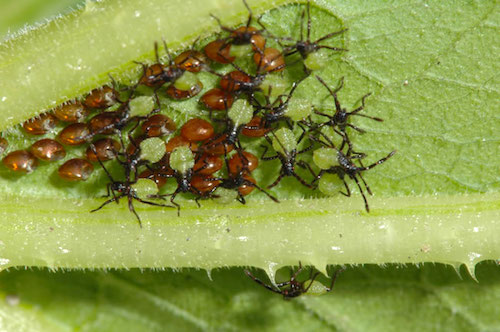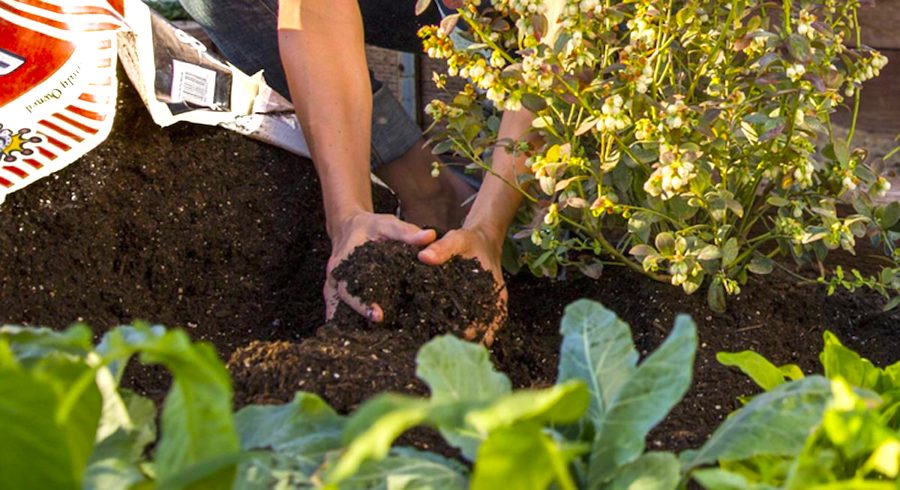There is just something about digging your hands into the earth's soil and preparing it for your garden. Prior to planting, I get myself a few pounds of coffee grounds for the soil and I work it in evenly. I use my hands to determine if my soil to fertilizer ratio is right. It sounds weird, but like a good chef in a kitchen, I have a feel for the balance of my ingredients in my soil. With the debate over GMO’s and preservatives in foods, organic farming has become a very viable option for people who are concerned about the food that they eat. Growing organic foods like vegetables and fruits in your own yard may not just be healthier for you, but it’s definitely more gratifying and the food just…tastes better!
If you live in Phoenix, you know that growing your own food can be a challenge. The dry, desert climate and baking hot summers mean extra care is needed for your crops. Don’t be discouraged if you attempt to grow some fruits and vegetables only to find that your first batch isn’t up to expectation; it may take some time to get your garden just right. It will be worth the hard work in the end.
As with any climate, certain foods and herbs grow better in certain weather and Arizona is no exception. With its ample sunshine, winter and springtime gardening make Arizona an excellent spot for gardening. The summer months, however, are unlikely to sustain a vegetable garden, due to the excessive heat and sunshine. Foods that grow well in Phoenix are broccoli, peppers, and eggplant, to name a few. Herbs like dill, rosemary, and oregano also do well in the Phoenix climate. Strawberries and tomatoes can grow in Arizona, but not without their issues; just when they start to ripen, the summer sun takes its toll on the crop.
Weather isn’t the only factor in growing your own crops in Phoenix; there are soil contentions and pesky insects standing in the way of you and your very own organic garden. Strawberries, for example, can be grown quite successfully in Arizona, but the alkaline in the soil is not generally conducive to a bumper crop…but concessions can be made with the addition of fertilizers and fish emulsion. The various pests that troll organic gardens are another setback, but one that can be fought and won, if you know your opponent. Consulting with an organic contractor that provides the best pest control Phoenix offers is a great place to start.
Aphids are tiny sucking insects that can attack most herbs, fruits, and vegetables and can cause substantial damage to a garden if not properly controlled. Pesticides are a solution, but if you are growing your own food organically, you probably want to keep your garden as organic as possible, sans pesticides. First, check the area for aphids before you plant! If you find aphids on surrounding weeds or plants, prune the area thoroughly and then plant. Watch for these creatures in the seedling stage, and use a protective cover on your plants. Aphids love nitrogen fertilizer, so use a slow-release organic fertilizer to avoid nitrogen overload and make sure to daily spray off your plants with a steady stream of water. Organic options like seaweed extract, insecticidal Safer Soap, even homemade garlic sprays can help to keep aphids at bay.

Spider mites are another pest you’ll find in your organic garden. They like the hot, dry climate of Phoenix and tend to like peppers, tomatoes, strawberries and a variety of other like plants. They lay eggs on the leaves and suck the nutrients right out of the plant. Plants with yellowing, white or tan spots and a cotton webbing on the underside of the plant are hints that you may have spider mites. The best way to combat these little critters it to use insecticidal Safer Soap or Neem oil all over the plants. Safer Soap made up of plant oils and animal fats, permeates a bug’s soft outer shell, causing them to dehydrate within a day. Neem Oil, an extract from the Neem tree, an evergreen tree found in India and South Asia, soaks into the soil, into the plant, and into any intrusive pest, causing them to stop feasting and killing larvae. Another good way of reducing spider mites is by isolating the plants, if possible, and spraying them down repeatedly with water. Introducing a natural spider mite predator can also help. Ladybugs kill spider mites and you can purchase them from a nursery; ask the nursery for more information.
You may have noticed slugs and snails in your garden; they like to eat low-lying leafy plants and ripe fruits. There are several different types of slugs and snails in the desert, but all can be dealt with using the same methods. Copper tape is one effective deterrent to these pests; the pest’s body fluids work with the copper to create an electrical charge. By placing this copper tape around your garden, you have essentially set up a snail electrical fence!
Tomato hornworms thoroughly enjoy tomatoes, eggplants, and peppers—many of the crops grown in organic, Phoenix gardens. They start out as green caterpillars with a distinctive horn on their tail; eventually, they morph into large, gray moths. The caterpillars chew the leaves, stems, and fruit of the plant. The best way to fight these creatures is to hand pick them off of your crops, an often tedious and time-consuming process. Btk and spinosad are two organic ways to fight back; Btk, a natural bacterium found in soil, will kill all caterpillars, so it should be applied directly to the underside of leaves and plants where the tomato hornworm will eat it. Spinosad is a relatively new insect killer that is produced by fermentation to control caterpillars and other garden pests. This newer, organic chemistry has proven to be effective and does not harm the environment.
While these are just a few of the bugs and pests you will need to combat in your organic garden, the overall experience of cultivating your own fruits and vegetables make it a worthy fight. Consulting with a local Phoenix nursery before you plant will help you to determine what to plant and how to effectively ward off any unwanted creatures. There are many organic options available to combat these pests, but it is important to investigate them first to ensure you are using the proper guard for your particular plants and the problems they face. Enjoying the literal fruits of your labor will make it all worthwhile!
